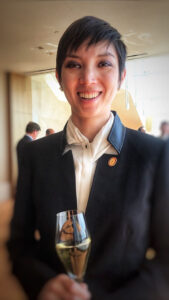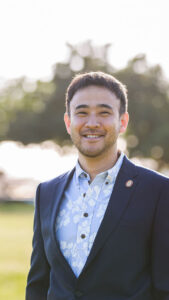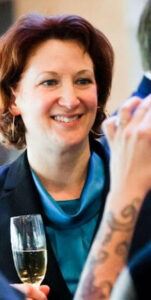WHAT’S NEXT FOR THE COURT OF MASTER SOMMELIERS, AMERICAS
by Stefanie Schwalb
It’s hard to read the words “Court of Master Sommeliers” these days without a flurry of thoughts running through your head. For all the excellent experiences many people have had with the organization, there are no words to justly describe the harm inflicted on many others by some of its members. This article won’t address the merits, or lack thereof, for the Court to continue to exist; after all, its membership has already voted to carry on while expressing a collective commitment to evolve into something more worthy of the reputation it previously had.
Nothing can dispel the pain and suffering of the women who have come forward to share their truth regarding sexual misconduct. Knowing this, members of the newly elected board of directors—including its chair, Emily Wines, and vice-chair Kathy Morgan—have signed on not only to carry the weight of the Court’s past but to redefine expectations for its future. We spoke with Master Sommeliers Mia Van de Water, David Yoshida, and Michael Meagher as well as Morgan shortly after their appointments to hear about their experiences and their plans for change. All of them intend to hold themselves—and one another—accountable for initiating that change in the days, months, and years to come.

Mia Van de Water, MS
Assistant general manager at Cote Korean Steakhouse
THE JOURNEY
“I personally had an amazingly positive experience [in the program]. It has been really sad, tragic, and shocking to be confronted by the fact that that’s not the way many people’s experiences have been. It seems clear that we as an organization haven’t successfully made sure that all of our members are walking the talk. We haven’t been as active and engaged with our wider constituency of candidates as we should have been. I have been comforted by the fact that pre-election, during the election process, and now post-election, it feels like the membership is on the same page. We want to ask ourselves the hard questions and look at how we can become a more transparent space that’s inclusive but still focused on objective excellence.”
NEW GOALS
“As a woman—and someone who doesn’t identify as white—I would like to be a part of making the organization a place that feels safer to more people. We want to make the necessary changes so our candidates feel like they have their own agency and understanding of how to be successful that’s not beholden to this ‘kiss-the-ring’ kind of idea that seems to have been perpetuated. I think more effective communication is one of the best ways to get people feeling OK, even if times are difficult. On the new board, we feel pressure to communicate better than our predecessors. I think it’s helpful to have some younger members on board. Several of us are much closer to having passed the exam than anyone on the previous board, so we’re more connected to the communities of current candidates. I am hopeful we’ll be able to make effective decisions that are better for everyone.”

David Yoshida, MS
MDiv; wine director at Threadfin Bistro and partner at SommPomms; co-chair of the CMS-A Ethics and Professional Responsibility Committee
THE JOURNEY
“My background is unusual in its hybridity. I passed the Master Sommelier exam while I was in graduate school studying religion with a heavy emphasis in ethics. A professor that I worked closely with specialized in sexual ethics, so there is a lot of overlap with my non-wine background and the Court’s current needs. I also have experience working in a restorative justice program embedded in the California prison system, so the necessity for careful attention to due process—and also the failings of a purely retributive punishment system—are not lost on me. I’d like to facilitate a discussion in our membership about implementing a model that seeks to repair the harm done to the relationships among the entire community. On a personal note, as a queer person of color, I also ran for a position on the board because I am well aware how my career has benefited from the Court’s validation. I believe wholeheartedly that CMS-A continues to have relevance and value in improving the career opportunities of other minorities. I refuse to let the misdeeds of a few mar the accomplishments of people like me.”
NEW GOALS
“This is a time to pause and reflect on our growth and hold ourselves accountable to the privileged position our work has created for our organization. The reality is we have assumed a position of leadership in the larger wine-professional community, so we are responsible to all of those affected by our training and examination standards. I know it will be a task to review and revise the Court’s standards for ethical behavior and the process by which it holds its members to account for their actions. This dovetails well with the Court’s ongoing work to redefine whom we are responsible to—and what we are responsible for.”

Michael Meagher, MS
Principal at Sommelier On-Demand Hospitality Services; co-chair of the CMS-A Ethics and Professional Responsibility Committee
THE JOURNEY
“We were elected by our membership for a reason: They believe the 11 of us are positioned well enough to make changes. As an organization, every single one of us wants change. It’s going to take months and years to really repair some of the damage that’s been done. We’re committed to that. Some of these changes can’t be made overnight because investigations that are happening are going to take time. The process has to be followed, not just for the victims who have come forward but for anyone who comes forward down the road. We want everyone to be heard and make sure all of these allegations are being investigated properly and thoroughly. People want it to happen quickly, and trust me, we on the board want that too—but we also want it to happen judiciously, thoughtfully, and respectfully. We’re going to engage in a lot of mindful listening as we move forward—that’s something all of us have committed to do.”
NEW GOALS
“Our board is more diverse than the last, but it’s still not where we want to be. We need to be more active in bringing people into our organization, but diversity will happen if we are more inclusive. It’s inspiring right now because so many people have spoken up and want us to change. I know there are people who walked away from us. I respect that decision. I hate to lose anyone talented who has seen our organization as a path forward in their career. I hope we can earn back some of their trust over time. Even if they don’t come back to our organization and put their faith in us, hopefully they can look at us and say, ‘Yes, they made changes. They responded.’ Sunlight is the best disinfectant . . . and we are having sunlight shine on some of our darkest corners. There’s a lot to discuss, but this is our opportunity to be better, to do better, to transform into the organization we believe we can and should be. I understand that so many of these women have experienced something I cannot begin to fathom. I know they’re hurting. Their careers have suffered. I hope that through the process we can provide some form of justice, relief, and closure that is fair. We can try our best to do our best, and that’s what we’re focused on right now.”

Kathy Morgan, MS
Director of wine education, Lauber Imports and Southern Glazer’s Wine & Spirits; vice-chair of the CMS-A Board of Directors and chair of the Education Committee
THE JOURNEY
“My experience coming through this program was very positive. I understand now from reading the newspaper that I was lucky. Everybody I reached out to for mentorship was kind, generous, and fair. That’s always the way I’ve seen the organization, so in a way I am grateful to the women who came forward to The New York Times for showing our shortcomings—our major, horrible shortcomings in that department—and I’m also grateful to have an opportunity to help be part of the solution. I have experienced sexism and harassment in the hospitality industry. That’s why all of these stories resonate so much. They sound exactly like things I’ve experienced.”
NEW GOALS
“Since the Court of Master Sommeliers is a smaller organization than other hospitality sectors, I think we can affect change faster. We can’t become diverse overnight, but we can change the culture relatively quickly because we have a lot of members who are wanting to help. I think our biggest challenge is to figure out exactly how to delegate and to whom. We absolutely want to involve our membership because we’re just 11 people—we’re not going to do this ourselves. We are driving inclusivity because that’s something we can start doing right away. With the inclusivity, diversity will happen. That will be the natural, organic progression. By inclusivity we mean to welcome all of our community—the beverage community, all of our candidates—to have a voice. We are planning to do more to bring the membership together. I think that bad behavior thrives in the shadows. The more we get to know each other and the more we’re part of this community, the less likely that will happen.”
